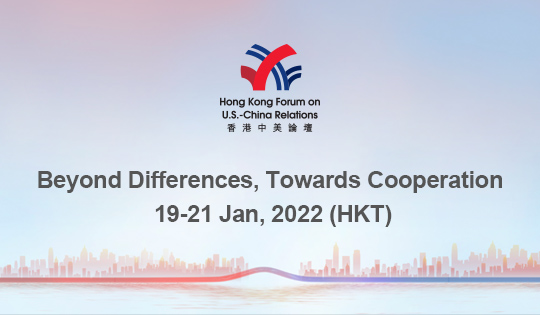These days, Taiwan attracted more international media attention, not because of its upcoming presidential election, but the historical meeting between Xi Jinping and Ma Yingjiu in early November.
Ever since the end of the Cold War, when the Western world was so confident that China would just follow the path of the Eastern European countries, one famous American scholar claimed that will represent “end of the history”, believing the path of economic liberalization would inevitably lead to political democratization.
The classic U.S. policy towards China was actually based on the same assumption. The Americans wanted to change Chinese behavior by engaging China, not only shaping its future development, but also restraining China from surpassing the U.S. The conventional wisdom says that the economic growth will help the middle class in China to grow up, which will lead to more democracy. A more democratic China will be less likely to force Taiwan to reunite with the mainland, but become more attractive to the Taiwanese people, which makes a peaceful resolution of the Taiwan issue more likely.
Taiwan had a similar view, that by economically integrating with China, it would have more capability to influence China’s future. Meanwhile, economic integration and interdependence will make the mainland less likely to use military means to force a reunification. If China’s economic growth slow down or even has a hard landing, it would have less power to coerce Taiwan. Either way, the time will be on Taiwan and the western world’s side.
For the Chinese, they didn’t have any doubt that the fast economic growth will pave the way for reunification with Taiwan. That is because Chinese are confident of their nation’s future development and the identity of Chinese nation among people from across the Strait. The Chinese on the mainland believed that time was on their side.
However, just as the world is changing fast, the views of the three sides are also changing dramatically. Early this year, a new round of China policy debate occurred among American strategists. The main focus is whether the strategic foundation for the US-China relationship has shattered, because China did not seem to follow the path that the U.S. and the Western world would like it to take. Instead, they believe today’s China is using its economic power to behave more aggressively in the Asia-Pacific region.
When Ma Yingjiu came into power, the cross-strait relations became closer. Sometimes, the U.S. believed that development is too fast beyond the U.S. imagination. When nobody talked about Taiwan, the Congress had to hold a hearing called Why Taiwan Matters? Therefore, the U.S. is concerned that it might lose control of the cross-strait relations one day, and it may not be able to use Taiwan as a tool to contain China’s rise in the future.
For the Taiwanese side, the status quo, namely no reunification, no independence and no use of force as they defined, seemed to be maintained. The pattern of inter-dependence across the strait is changing. Whether they like it or not, the mainland now is the largest investment market for Taiwanese companies, the Chinese from the mainland represent nearly 40 percent of outside tourism. With the increasing opening up of the mainland market, and the development of industrialized technology, the mainland is gradually becoming less dependent on Taiwan. Meanwhile, the mainland is proactively negotiating FTA with regional countries. Actually, it has signed 16 free trade agreements and 13 of them have gone into effect. In this regard, Taiwan felt it has been left behind.
With the Democratic Progressive Party likely to come into power, there are worries that the economic benefits Taiwan enjoyed in the past eight years may no longer continue. Taiwan has witnessed the mainland using its economic power to realize its foreign policy goals, the DPP is concerned this might happen to them, too. Politically, China has never followed the path the West designed for it. While Taiwan no longer has military advantages over the mainland, and the U.S. is not so reliable as it used to be, it becomes even more worried that time is not on their side.
China has a similar concern, especially after last year’s so called “sunflower movement” in Taiwan. It believes that as time goes on, the “greater China” mentality would have less influence on the younger generation of the Taiwanese people. The possibly incoming DPP government would only drive the island even further from the mainland. It will inevitably affect the realization of the reunification. For this reason, the historical meeting between Xi and Ma happened, during which the ‘92 Consensus was reiterated and strengthened, and the ball is now in the DPP’s court.
If the ‘92 Consensus is respected, which is already the bottom line for a healthy cross-strait relations, the relations could advance in the way benefiting both sides, which will continue to enjoy the bonus of the peace and economic cooperation. This peaceful development will also benefit the US as well. What the US should do is to encourage the continuous peaceful development of cross-strait relations, rather than, as some Chinese believe, using the so-called “Taiwan card” to contain China.
